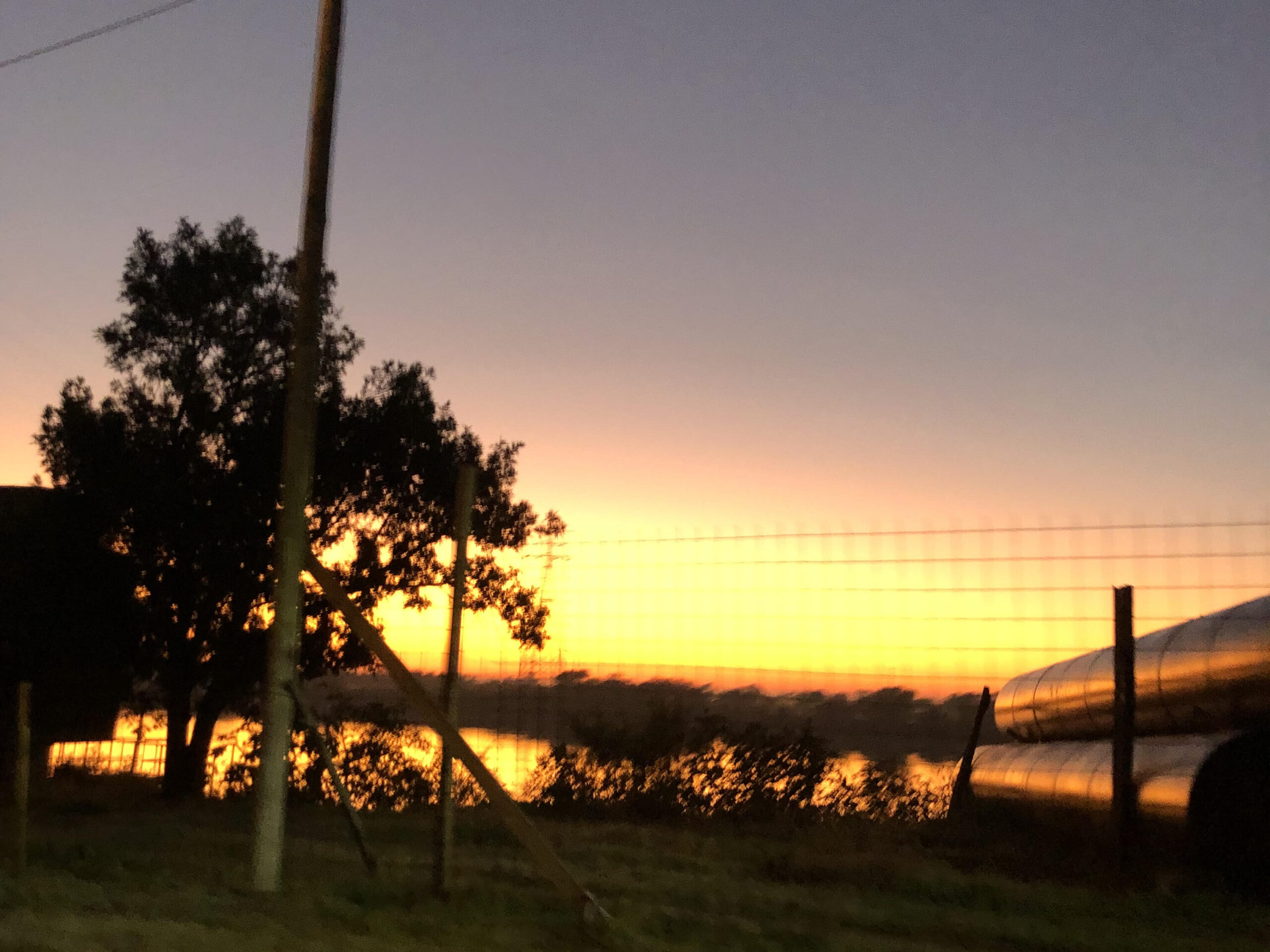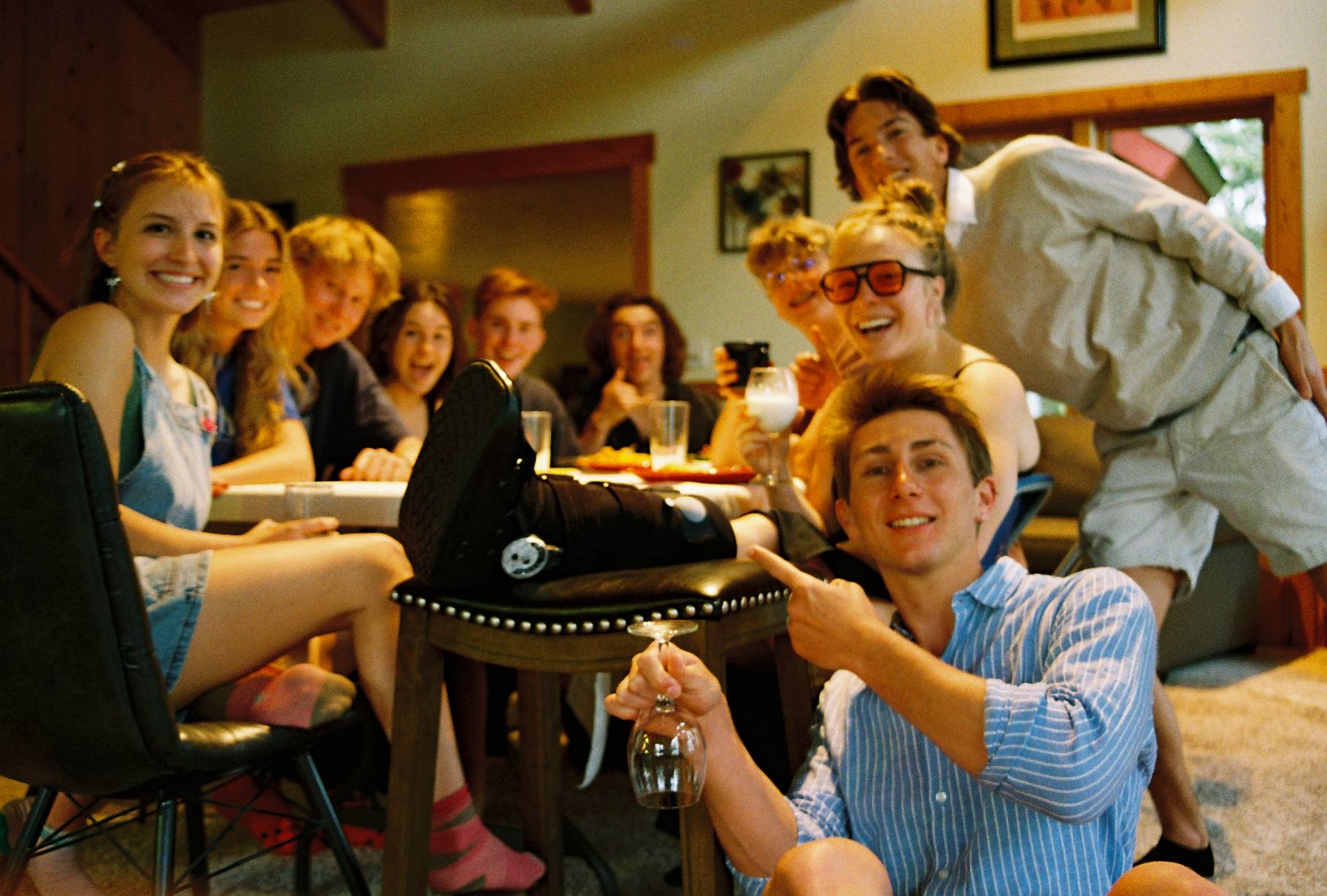By Stanley Johnson
It had been thirty-four days since my grandfather had died. There were seven of us packed into my grandmother’s Citroën C3. I stopped at the toll and handed the toll collector eighty pesos. She didn’t bat an eye at my two youngest cousins, huddled in the rear of the five-door hatchback.
“Pasa no mas.” [Pass through]
And so, the car chugged along National Route 11, en route to Coronda, Argentina, where my grandfather was born.
Coronda, a small town about an hour south of Santa Fe, has little to offer. Situated on the littoral of the Paraná River, its industry consists entirely of river fishing and soybean farming. My great-grandfather was the director of the city’s normal school. That’s the extent of my knowledge, and it is more than I had while driving through the tiny city.
It had been thirty-six days since my grandfather requested to see a priest. Born into a socialist household, there had never existed an ideal outside of science or Engels. That request is why, on a particularly cold fall day, while eating lunch in my high school cafeteria, my phone blew up with WhatsApp messages from our eighteen-member family group chat. I knew he was in a bad state, but not this bad. I called my cousin.
“Empezaron con la morfina” [They started administering morphine]
By the time I got home, my mother was already at O’Hare. By that night, her text message read, Boarding for Ezeiza. Don’t be concerned.
My mother’s biggest fear was missing a funeral. I learned from a young age that when it comes to the death of a person, an Argentine prefers it to be over quickly. She told the story of her grandmother, who, for example, died on a Friday night and was put to rest that Saturday morning. Ever since we moved from Buenos Aires, we’ve been at least a fourteen-hour flight away—long and expensive enough to warrant a trip every other year, but short enough to make every slip and fall a worrisome event. My mother always budgeted at least one ticket into her yearly expenses. Just in case.
It had been thirty-five days since my grandfather asked to see a lawyer. The Duran’s have a mausoleum in Coronda with enough space for two more people; it was thought but never spoken that this is where he would lay. Like the Durans before him, it was in his last will and testament that he’d be buried among his own. When the family lawyer showed up, my grandfather, under now-increased dosages of morphine, said,
“Cenizas.” [Ashes]
So, the lawyer revised the document, and with it, a somber mood fell on everyone in the room, including myself, who, six thousand miles away, realized I’d never see him again.
No remnants would exist; no exact spot would display a symbol to which I could mourn. No location could provide the safety of presence; there would be no site on which I could kneel and grieve atop the ground that earthed the man I had once loved more than the world. In that moment, which existed for me between the dairy and produce sections of the Costco off Cole Road in Boise, Idaho, time slowed down . I’d gotten a call from a +54 number. I found a place where the traffic was less dense and answered it. It was he. In mumbled and doped-up verse, he told me that he loved me, that the future was bright, and that there were too many people. I broke. I cried in the garden section at a Costco in Boise, Idaho. Among those half rotting, and half wilting plants I cried for the first time . I cried at the loss of a man who hadn’t died but was in such a state that it made no sense to differentiate.
Thirty-four days since my grandfather died. The Citroën had managed to reach the muddy green banks of the river. My grandfather’s ashes were in the center console. I didn’t pick him up. Neither did my grandmother, who was in the passenger seat. I can’t remember who did. I do remember that along that grassy bank, with my family around me, I spread his ashes.
No one said a word.
Each of us trudged back through the muddy and sunken earth to the car. No one said a word. We left Coronda and headed towards my grandmother’s house; an old Spanish colonial home situated fifteen minutes north of Santa Fe. When we arrived, water was put on for maté (a type of tea popular in South America), my younger cousins lolled in hammocks along the edge of the outdoor patio, and my older cousins sat around a small table in the center of the courtyard. My grandmother took a seat at the table and started slicing a small cake. Her shaky hands clutched the knife, longing for control over something. The grip only seemed to worsen the situation, every small movement further reducing the confection to crumbs. Eventually each slice was ceded to her grandchildren. She turned on Radio Nacional; we drank maté and then swam in her pool. No one said a word.
In times of grief, life is indistinguishable from the past and the future. Memories tangle themselves with realizations that no memory will ever be made again. In the unfortunate state of duality is where pain is present, with feet in two worlds, with presence in both the existent and nonexistent.
I still think about that Citroën and that car ride. The joint sum of memories flowing in and out of that vehicle, itself hurling itself with all its might to the true stem of those memories . The bright sun inflicting rays upon the car. The car struggling not only to move but to blow cold air through its AC system. I still think about him, Ricardo, Chumpa, my grandfather. I think of all the joys, adventures, misadventures, art, music, and love that I experienced with him.
Radio Nacional started to play a Jobim piece that I cannot recall. All was good. Thirty-four days after he left, I felt a closeness in his memories, yet with every passing day I move further from Coronda, I take solace in knowing I’m never with the inability to return.

These are the real accounts of the feelings and events surrounding the death of my grandfather, Ricardo “Chumpa” Duran. This poem was originally submitted as a personal narrative essay for my rhetoric 101 class in September 2023. Minor revisions have been done since then. The photo above was taken on the day we spread his ashes.
On April 25, 2024, “A French Car Halfway through the Pampas” won the Philip Hortenstine Ropp Award for Excellence in Student Writing from the Hampden-Sydney Creative Writing Program.

